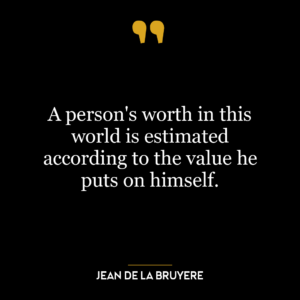This quote suggests that happiness or ‘paradise’ is not a physical place, but a state of mind. It implies that the true joy of life comes not from external circumstances, but from how we perceive and respond to them. It suggests that ‘paradise’ is not something to be sought in the world outside, but found within oneself. The quote encourages us to find contentment and peace in the present moment, regardless of where we are or what we are doing.
In the context of personal development, this quote can be seen as a reminder to cultivate an inner sense of peace and contentment, rather than constantly seeking external validation or happiness. It suggests that true happiness comes from within and is not dependent on external factors such as wealth, success, or the approval of others. This can be a powerful perspective in a world where we are often encouraged to seek happiness in material possessions or social status.
In today’s world, this quote could be interpreted as a call to be more mindful and present in our daily lives. In a society that is often focused on the future or distracted by technology, this quote reminds us to find joy in the present moment and to appreciate the journey, not just the destination. It could also be seen as a commentary on the consumerist culture, suggesting that the constant pursuit of more does not lead to happiness, but rather that happiness comes from appreciating what we already have.
Moreover, in the context of the global pandemic, where many people are unable to travel or even leave their homes, this quote takes on a new relevance. It suggests that we can still find ‘paradise’ in our current circumstances, by cultivating a positive mindset and finding joy in the simple things in life.












